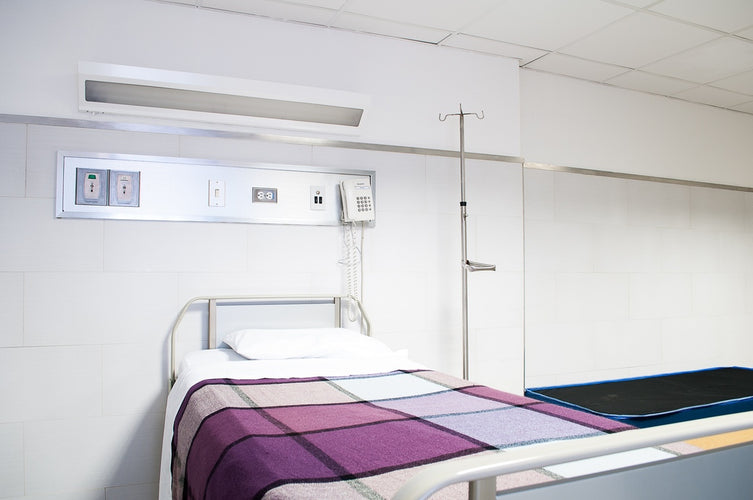What is Durable Medical Equipment Used For? Why You Need It
Hospital beds, wheelchairs, crutches, and bathroom safety—are all examples of durable medical equipment (DME) that help people with disabilities and chronic illnesses access healthcare safely and conveniently.
But what is DME used for specifically?
In a medical setting, DME is used to maintain and improve patients' health with chronic conditions or disabilities. It can be used in the home and during visits to a doctor’s office, rehabilitation center, or hospital.
In addition to helping people manage their medical condition, DME helps prevent further injury or illness by supporting daily activities such as bathing, getting dressed, and transferring from one location to another.
DME includes a range of products such as wheelchairs, walkers, oxygen equipment, hospital beds, gel mattresses, nebulizers (for breathing treatments), communication aids (such as hearing aids), bathroom safety items (which help prevent falls in the shower or bathtub), and ramps for entering/exiting homes.
In addition to providing medical support and stability in a home setting, DME can also be used in conjunction with other forms of therapy. For example, a wheelchair may provide necessary mobility, while physical therapy helps restore strength and flexibility.

Understanding Durable Medical Equipment
Homecare facilities and other healthcare providers must consider the patient's medical condition when selecting DME. The item must be appropriate for the individual’s needs, as well as their lifestyle.
For instance, a wheelchair should fit the person correctly and accommodate special features such as ergonomic or adjustable seating. A hospital bed should offer sufficient support while providing enough room to move around comfortably.
Bathroom safety, like grab bars, must be installed securely in the home and should follow local building safety codes.
A healthcare provider, such as a doctor or physical therapist, will typically recommend the appropriate DME for an individual based on their condition and lifestyle. The patient may then work with a durable medical equipment supplier who will provide the necessary items and ensure all guidelines are followed.
Different types of DME
What is durable medical equipment used for?
It can be used to improve and maintain the quality of life for people with chronic illnesses or disabilities. It is essential to understand how DME works and its necessity in managing a medical condition.
The most common types of DMEs are as follows:
- Mobility aids like wheelchairs and walkers
- Hospital beds, mattresses, and ramps
- Bathroom safety items and transfer aids
- Communication aids like hearing aids
- Respiratory devices such as oxygen tanks and nebulizers
- Diabetic monitoring systems
- Orthopedic braces
Whether dealing with a chronic illness or physical disability, DME is an invaluable resource that helps people maintain their independence while providing necessary medical support. It can significantly improve the quality of life for those who require specific assistive devices to access healthcare safely and conveniently.
Benefits of Durable Medical Equipment
- Improving quality of life
- Aiding recovery and rehabilitation
- Enhancing independence and mobility
- Reducing hospital stay and healthcare costs
DMEs are designed to provide medical assistance to individuals with disabilities or chronic illnesses. They aim to improve the quality of life and reduce healthcare costs by preventing further injury or illness.
By understanding what is durable medical equipment used for, you can ensure that you select the right items for your needs.

How to Access Durable Medical Equipment
Did you know that you have different options regarding how to access DME?
The first option is through Medicare or a private insurance provider. Depending on your need and condition, these providers can cover the cost of certain DMEs.
If you don’t have insurance, there are still ways to access DMEs. You can get financial assistance from the government by applying for Medicaid or Supplemental Security Income (SSI). Local organizations also provide resources and support services for those in need.
You should always consult your doctor before purchasing durable medical equipment, as they can best recommend products tailored to your needs.
Renting from a trusted provider is another option. For instance, Whittier Medical Supplies offers DME rentals for short-term or long-term use. You can get in touch via email at sales@medicalsupplywhittier.com or by telephone number (562) 358 4003, and their excellent support team will guide you through the process.
Care and Maintenance of Durable Medical Equipment
Proper maintenance is essential if you want to ensure your DME's longevity and optimal performance.
It’s essential to familiarize yourself with all the parts of the equipment and learn how to use it correctly. You should also read up on all safety guidelines for operating the device.
Inspecting your DME regularly will help prevent any potential problems or breakdowns. This involves checking for wear and tear, loose screws, or other signs of damage. If you find anything that needs repair or replacement, contact your supplier as soon as possible.
Take away
DME is crucial in managing and improving the health of individuals with chronic illnesses or disabilities. Different types of DME are available to suit an individual’s needs and can be accessed through various options or rental services. With proper maintenance and use, DMEs can provide many benefits to improve quality of life.
 DMEs RENT NOW, PAY LATER. Starting at 20$
DMEs RENT NOW, PAY LATER. Starting at 20$ 





